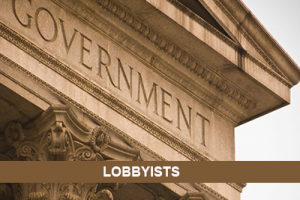Employees | Lobbyists | Contractors
In June of 2003, WSSC Water adopted Code of Ethics regulations that include but is not limited to the establishment of an independent Board of Ethics, the establishment of the Ethics Officer position, conflicts of interest, financial disclosure, lobbying disclosure, and ethics in public contracting. The Code of Ethics became effective November 1, 2003.
WSSC Water’s Commissioners and employees are required to maintain the highest professional and ethical standards in the performance of their official duties. The purpose of the Code of Ethics is to identify those activities which shall be considered unethical for employees to engage in and which are therefore prohibited. The Code of Ethics also establishes both an independent Board of Ethics and an Ethics Officer position to assist the agency in maintaining the desired ethical standards.
Board Responsibilities | Board Members
Rules of Procedure | Code of Ethics
Board of Ethics Annual Reports
Employees
The Ethics Office for the Washington Suburban Sanitary Commission (WSSC) is the clearinghouse for ethics and compliance inquiries, guidance and reviews.
WSSC’s Ethics Officer directs and manages the WSSC Ethics Program and all related program components and processes, including compliance. The Ethics Officer serves as your Ethics Partner, responding to any questions or concerns you may have. The Ethics Officer also serves as the liaison between the WSSC Commissioners and the Board.
If you need ethics guidance, have ethics questions, or have an ethics concern, please contact the Ethics Officer at 301-206-8010. You may also request information and ethics guidance at #ethicsquestions@wsscwater.com (use Google Chrome or Firefox to access this link). Feel free to stop by the Ethics Office anytime.
Remember all communications are held in the strictest confidence.
Annual Disclosure for Former Employees | Ethics Opinions
Entities Doing Business With WSSC, Calendar Year 2025 (PDF 6.16 MB)
Lobbyists
WSSC Water adopted a Code of Ethics which, among other things, requires lobbyists to register and file reports regarding lobbyist activity with the Board of Ethics.
Traditionally, Lobbyists are people hired by groups, organizations, or businesses with particular interests to convince Legislators to pass or defeat legislation. As the name suggests, lobbyists often work the lobbies and corridors surrounding the legislative chambers, intercepting members and arguing their client's case.
Article 6 of the WSSC Water Code of Ethics addresses Lobbyists and Disclosure. The Code states that “An individual or organization must register as a lobbyist if there is a Communication with a Commissioner or employee to influence executive or administrative action by WSSC Water, for compensation.” In addition, the Code requires that each registered lobbyist file bi-annually with the Board of Ethics, a report, under oath, of its lobbying activities. These reports must cover:
- the period from January through June 30, filed by July 31; and
- the period from July 1 through December 31, filed by January 31.
If a lobbyist communicates with WSSC Water with the intent to influence and expends $100 or more during the reporting period, the lobbyist must register with WSSC Water. Examples of expenditures include but are not limited to: Meals, beverages, special events, and gifts.
In addition, if a lobbyist communicates with WSSC Water with the intent to influence and is paid either $500 per lobbying employer per reporting period, OR $2,500 from all lobbying employers cumulatively during a reporting period, the lobbyist must register with WSSC Water.
Failure to file timely reports could subject the lobbyist to late fees (imposed by the Board of Ethics) of $25 per day, not to exceed a total of $1,000. (See Article 2 of the Code of Ethics, § 2-5(e)).
Lobbyists must register with WSSC Water within 5 days after an individual or organization first meets the requirements for Registration. To register, the lobbyist must:
- Complete the registration form (Note: One form per lobbying employer is required)
- Remit fee of $125 per form to the Board of Ethics
For more information concerning the requirements of the Code and limited exceptions, see Article 6 of the Code of Ethics.
List of Lobbyists | Lobbyist Activity Report
Lobbying Registration and Reporting FAQs
Contractors
The WSSC Water Ethics Officer has the responsibility of directing and managing the comprehensive ethics program of the WSSC Water, and all related program components and processes, including program compliance.
WSSC Water’s Commissioners and employees are required to maintain the highest professional and ethical standards in the performance of their official duties. The purpose of the Code of Ethics is to identify those activities which shall be considered unethical for employees to engage in and which are therefore prohibited. The Code of Ethics also establishes an independent Board of Ethics and an Ethics Officer position to assist the agency in maintaining the desired ethical standards.
After reviewing the WSSC Water Code of Ethics, if you need ethics guidance or have ethics questions, please contact the WSSC Water Ethics Officer at 301-206-8010. You may also request information and ethics guidance at #ethicsquestions@wsscwater.com (use Google Chrome or Firefox to access this link).
Ethics in Public Contracting Regulations
Rules of Procedure | Code of Ethics


